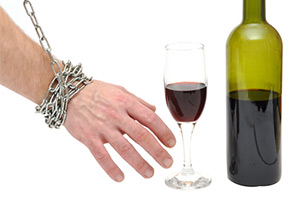You are able to start encountering moderate alcohol withdrawal symptoms anything from 6 to 12 hours following to you having had your last alcoholic beverage. Your blood alcohol level can always be rather high as of this stage.
After a period of 12 to twenty four hours subsequent you having had your last drink, you may find that you experience hallucinations. They’re frequently visual but may also be responsive or auditory. Most hallucinations disappear within a 48 hour period. This really is known as alcoholic hallucinosis but shouldn’t be confused with hallucinations experienced when struggling with delirium tremens. Liquor withdrawal individuals usually are conscious that these hallucinations aren’t real.
Within 24 to 48 hours subsequent to the final alcoholic drink being consumed there’s a danger of seizures, although these could actually begin within 2 hours after the individual stops drinking. People who have gone through detoxification previously or have experienced prior seizures are at a much higher risk. Delirium tremens may start such a thing from 48 to 72 hours following the person has stopped drinking. Those who suffer from various medical diseases, are aged, have impaired liver function or who have had seizures all through past withdrawals are at high danger of developing delirium tremens.
To examine whether you are suffering from liquor withdrawal problem, your medical practitioner must receive the full medical history including just how long you’ve been a drinker and the quantity you usually imbibe. He will even need to find out whenever your last drink was and if you’ve suffered from alcohol withdrawal in the doctors who specialize in benzo withdrawal. You may also be questioned in your medical record and whether you are presently experiencing mental or physical wellness conditions. The doctor will also need to know in the event that you punishment different substances.
Your doctor is going to do a real examination and check always for withdrawal symptoms while also making sure you are maybe not suffering from problems that may complicate the liquor withdrawal such as for example coronary artery disease, congestive heart disease, infections, unusual heartbeats, nervous program problems, gastrointestinal bleeding, liver illness or pancreatitis. Body and urine tests is likewise applied to check on blood alcohol degrees, body depend to check on for infection, liver function, electrolyte degrees in addition to additional drugs in your body or urine. A doctor can use these results to find out whether you are experiencing alcohol withdrawal and how significant it is.
Your medical practitioner may choose based on the intensity of your symptoms on whether to deal with your situation as an outpatient or an inpatient. Outpatient care is generally a great deal cheaper and is preferable if you have a good help structure. If you may not have a good cultural help design or are pregnant you may well be necessary to be treated as an inpatient.
Managing liquor withdrawal problem doesn’t address the dependency, only the withdrawal symptoms. Persons should follow up with therapy and therapy for alcohol dependence or liquor abuse to access the root reason behind the disease. While alcohol abuse might be curbed with therapy on an outpatient base, people by having an alcohol dependence may need more intense treatments. Your medical practitioner could prescribe particular medicine to help keep you consuming following your detoxification. Joining groups such as for example Narcotics Unknown and Alcoholics anonymous and getting portion within their a dozen stage program may also be of some benefit.
